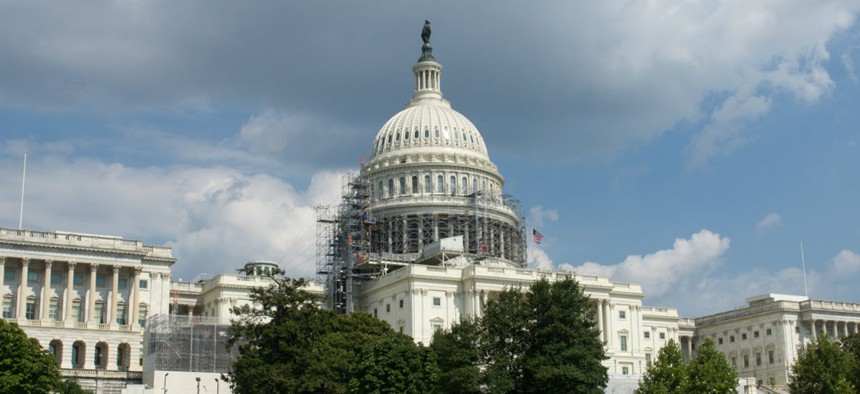
Architect of the Capitol
Agencies Could Face a Nearly $800M Sequester Next Year
Appropriators are optimistic that their bills will eventually fall in line with spending caps, despite OMB warning.
House spending proposals for next year would require a sequester of more than three-quarters of a billion dollars, according to a new report from the Office of Management and Budget.
As they stand now, House funding bills would lead to a revocation of $775 million in non-defense discretionary spending from federal agencies' fiscal 2017 budgets, and an additional $17 million from defense spending. Senate measures, however, fall well under spending thresholds required by the 2011 Budget Control Act -- as amended by a 2015 budget agreement that boosted the spending caps for fiscal years 2016 and 2017.
An aide to the House Appropriations Committee said the lower chamber’s spending bills will eventually fall in line with the spending caps. Only the military construction and veterans affairs measure has gone through the conference process with the Senate, and the other 11 spending bills have not yet been adjusted for the increases that resulted from that agreement. Once all 12 measures have gone through to conference committee -- a dubious prospect with the current Sept. 30 deadline -- the aide said they will fall within the budget caps.
Congress can appropriate $544 billion to non-defense agencies in fiscal 2017, according to OMB, and $610 billion for defense activities. The 2015 budget deal boosted spending by $25 billion for each category.
While partisan divisions have mired House legislation, the Senate has passed its appropriations bills with little turbulence, approving most of the measures out of committee with unanimous support. The upper chamber’s spending bills, as currently written, would come in $197 million under budget caps for defense agencies and $2 billion less than the non-defense limit.
OMB said no sequester will be required for fiscal 2016, even if Congress approves emergency funding to fight the spread of the Zika virus. It noted, however, that Congress has provided no budgetary relief for fiscal years 2018 through 2021, the remaining lifespan of the original 2011 law. Two separate budget deals have staved off the full impact of the mandatory spending cuts in fiscal years 2014 through 2017.
Congress must move quickly when it comes back from recess next month to pass the remaining 11 spending bills, or pass a stopgap continuing resolution, to avoid a government shutdown in October.
NEXT STORY: Trump on Immigration: Schrodinger's Candidate







